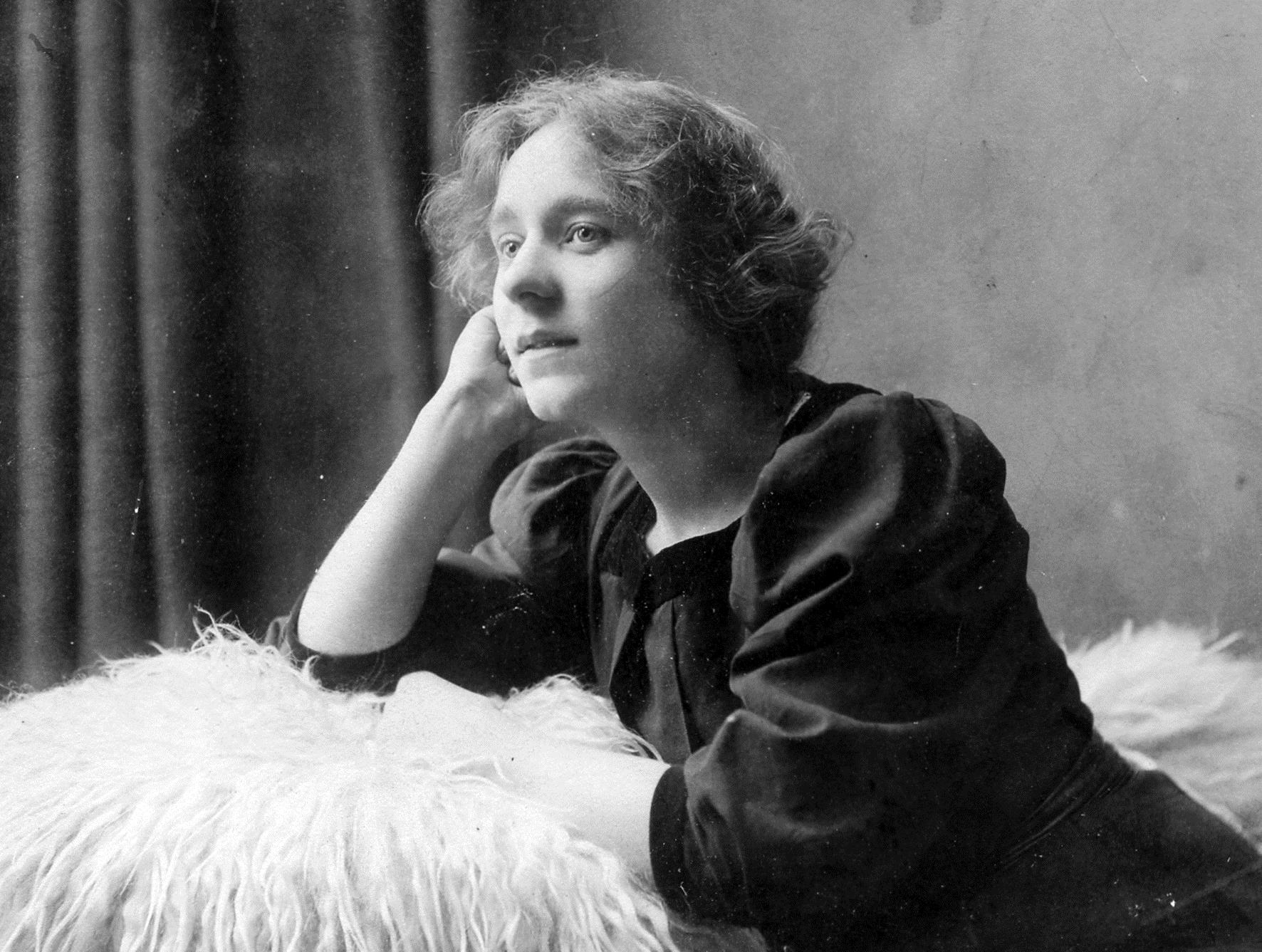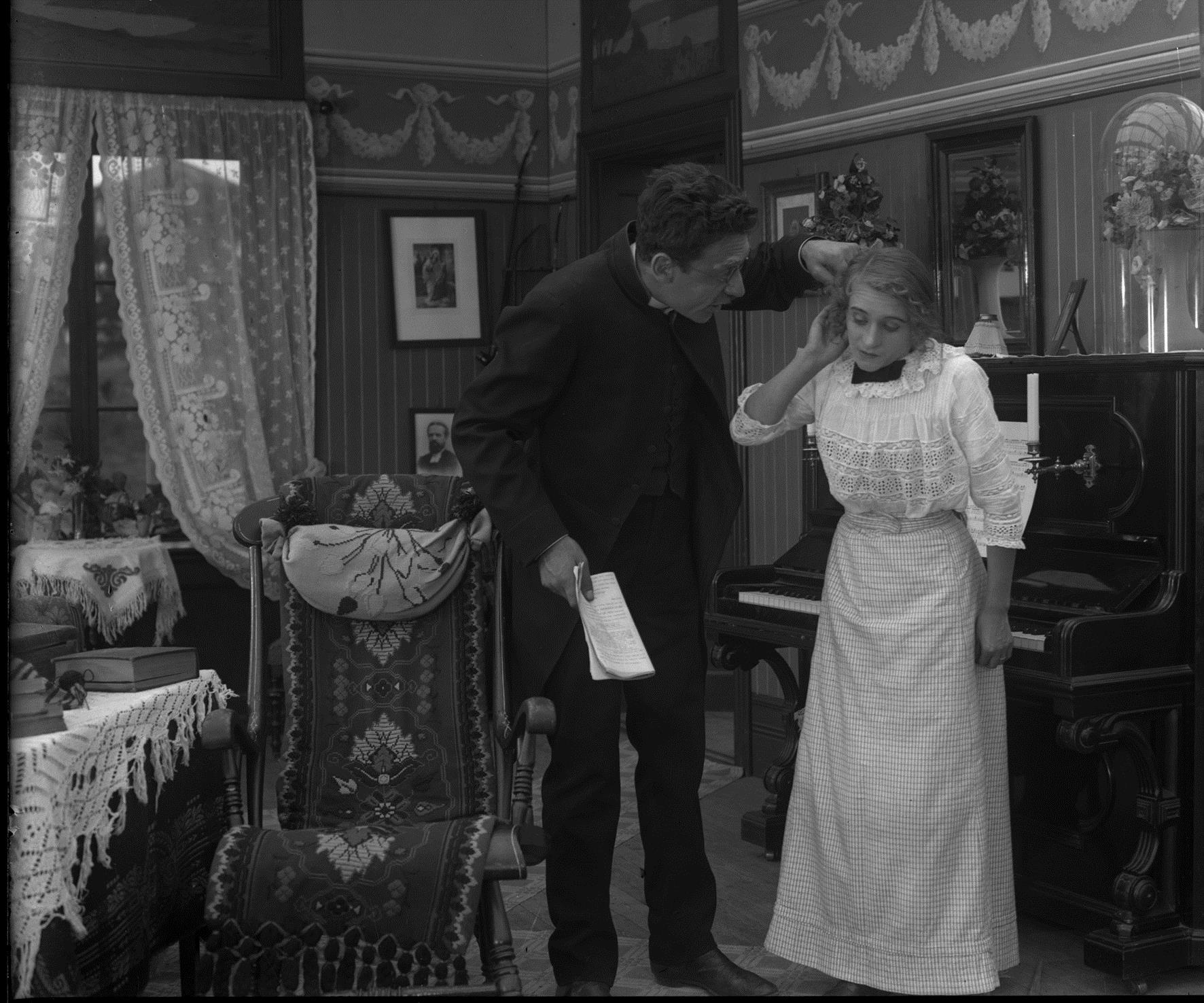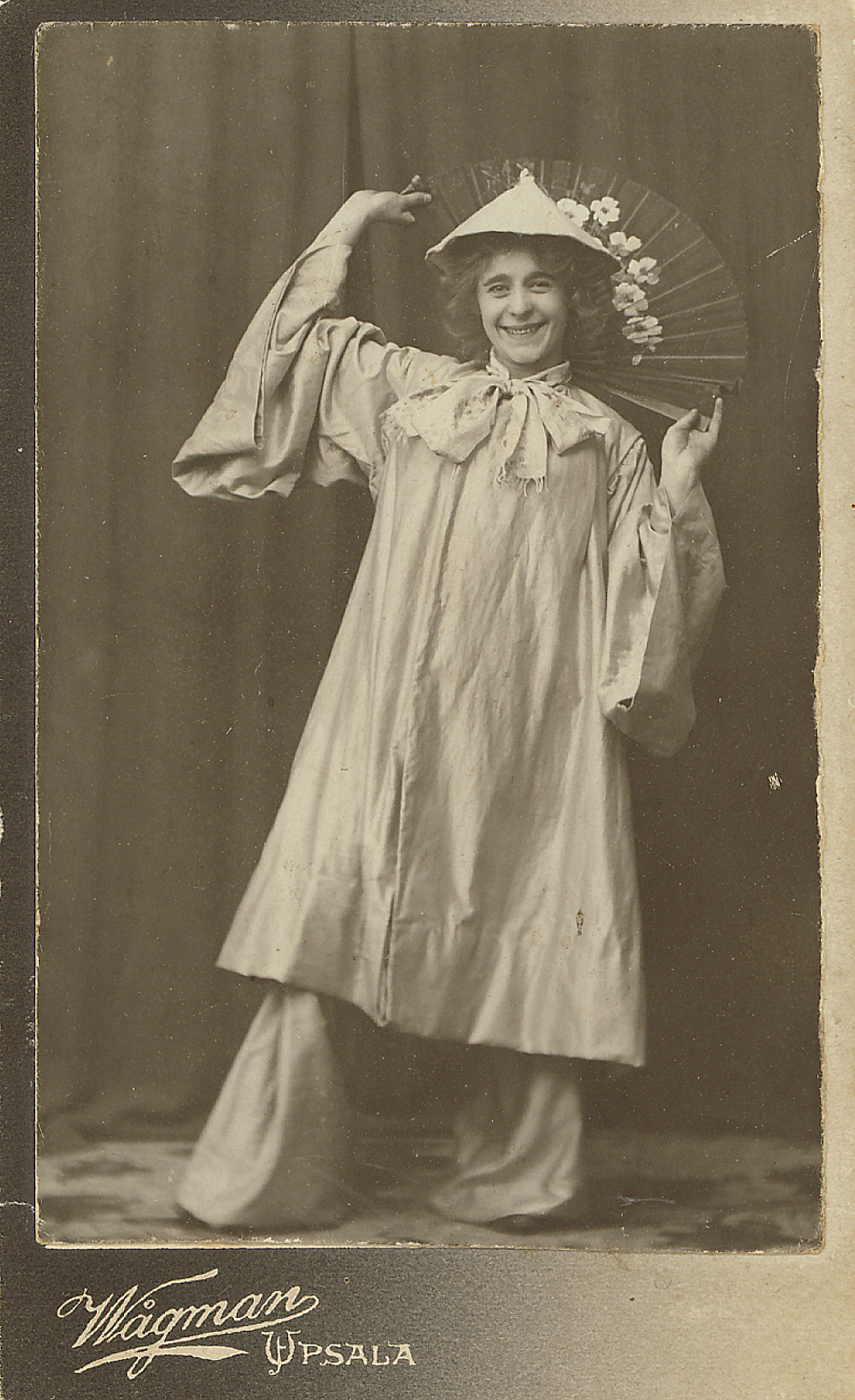Ester Julin was the screenwriter behind a number of the films that made up the first Golden Age of Swedish cinema.
With a background in the theatre, Julin made her screen debut in the same year and same film as Mauritz Stiller. Directed by Stiller Den tyranniske fästmannan (‘The Tyrannical Fiancée,’ 1912) was released in the same year that Stiller and Victor Sjöström signed contracts with Svenska Bio, later to become Svensk Filmindustri. Stiller and Julin had played the same parts in the stage version of the work, Gustaf von Numer’s “Bakom Kuopio” (‘Behind Kuopio’), at Lilla Teatern in Stockholm. Their partnership continued as the years progressed, most often with Julin in the role of screenwriter.
Interviews with Julin in the Swedish film press from 1910 onwards concentrate on her work in the cinema, yet there is no direct focus on the fact that she was a female screenwriter. However, it is hard to confirm many of her contributions as a writer since her name did not always appear in the final credits. Together with Stiller she wrote screenplays under the pseudonym Alexander Vichetos. She also collaborated on scripts with Sjöström; they wrote the screenplay for the first ever film version of a work by Selma Lagerlöf: The Woman He Chose (Tösen från Stormyrtorpet, Victor Sjöström, 1917; US title: The Girl from the Marsh Croft), and wrote also another Lagerlöf adaptation, God’s Way (Karin Ingmarsdotter, Victor Sjöström, 1920).
Julin received much acclaim for her original screenplay for The Beloved Fool (Carolina Rediviva, Ivan Hedqvist, 1920), partly filmed in Uppsala where she had grown up. “Ester Julin is clearly someone who knows her stuff; she combines humour with feeling and an excellent understanding of what really works on the silver screen,” wrote the film critic of the Swedish broadsheet Dagens Nyheter, after the film premiered at Stockholm’s famous Röda Kvarn cinema.
During the 1920s Julin worked as a freelancer for various minor film companies such as Svensk Örnfilm and Petschler-film. She concentrated on dramas set in rural milieus, making her directorial debut with Lyckobarnen (‘The Lucky Children,’ 1927), a feature film about five orphaned children who set out on the country roads to avoid being sent to the poorhouse. Much of the film was shot in Gysinge in the Swedish province of Gästrikland during the summer of 1926. Screened as a matinee for the Christmas holidays, the film has unfortunately been lost. Ester Julin died a few years later in 1931.
Mikaela Kindblom (2013)
(translated by Derek Jones)
Basic info
Main profession: Screenwriter
Born: 1885
Died: 1931
Active: 1912-1926
Filmography
Regi:
Lyckobarnen (1926)
Manus:
Hans bröllopsnatt (1915)
Hans hustrus förflutna (1915)
Tösen från Stormyrtorpet (1917)
Carolina Rediviva (1920)
Karin Ingmarsdotter (1920)
Där fyren blinkar (1924)
Bröllopet i Bränna (1926)
Lyckobarnen (1926)
Dan, Tant och lilla fröken Söderlund (1924, ej inspelat manus)
Skådespelare:
Den tyranniske fästmannen (1912)
Hans bröllopsnatt (1915)
Där fyren blinkar (1924)
Bröllopet i Bränna (1926)


